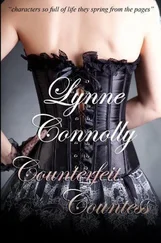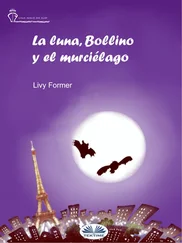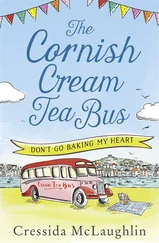‘Yes. There we are,’ said Iris. And she took his hand in hers and kissed his knuckles, one by one.
Chapter 3 Chapter 3 Chapter 4 Chapter 5 Chapter 6 Chapter 7 Chapter 8 Chapter 9 Chapter 10 Chapter 11 Chapter 12 Chapter 13 Chapter 14 Acknowledgements About the Author Also by Cressida Connolly Credits Copyright About the Publisher Конец ознакомительного фрагмента. Текст предоставлен ООО «ЛитРес». Прочитайте эту книгу целиком, купив полную легальную версию на ЛитРес. Безопасно оплатить книгу можно банковской картой Visa, MasterCard, Maestro, со счета мобильного телефона, с платежного терминала, в салоне МТС или Связной, через PayPal, WebMoney, Яндекс.Деньги, QIWI Кошелек, бонусными картами или другим удобным Вам способом.
The air in the house seemed to be heavy with steam and the sweet, rotting smell it carried. The only escape was to stay in the sitting room and open the French windows onto the narrow terrace, even if that did mean letting in the cold Northumbrian air.
‘Goodness, darling! Don’t have those windows open, you’ll make the whole house freeze,’ said Iris, sweeping into the room where Ruth was sitting at the piano. She was pressing single keys with one finger, before singing the eight notes up and then down each scale. She had already noticed, after only three days in the house, that Iris interrupted her whenever she sang or played. The given reason was that the sound might wake the baby, although Ruth wondered if there were not some other motive, as the baby’s room was surely too far for the music to carry. Iris shut the glass doors firmly and went to put a log on the dwindling fire.
‘It’s the smell of the nappies,’ said Ruth. ‘It’s like boiling beetroots mixed with cabbage. It’s worse than school.’
‘It is rather foul,’ Iris agreed, speaking as she always did, as though anything concerned with the practicalities of the baby had nothing to do with her. ‘But the draught’s not good for Birdle, is it, darling?’ she said, addressing the corner of the room, where a pale-grey parrot was watching her from a cage on a tall wooden stand. The bird was treading from foot to foot in agitation at the sight of Iris, who usually opened the cage directly she came into the room, allowing its occupant to clamber beak first out of its confines and about the room at will.
‘Do pipe down!’ said Birdle. The intonation was unmistakably Iris’s. She and Ruth both laughed.
Birdle had been Digby’s wedding present to Iris. The parrot had become extravagantly fond of her, sitting on her shoulder in the evenings, constantly attempting to feed her pieces of seed or nut, quite possibly regurgitated ones. When she played patience Birdle often sidled down her arm to the table and picked up single cards with his beak, one after another, before distributing them at random across the thick felt, spoiling the game. If Digby came near his wife, if he tried to sit beside her on the yellow sofa, Birdle scuttled along the back, head lowered, and bit him. He shrieked whenever Iris came into the room, but only looked slyly and in silence at everyone else. The sole words he spoke were imitations of her. Ruth was secretly rather afraid of Birdle. She had held him once or twice, at arm’s length in case he tried to bite, and been amazed by the lightness of him: it seemed remarkable that so forceful a personality could be contained within so light a frame. Digby found Birdle endlessly comic, despite having been given a bleeding ear lobe on more than one occasion.
Ruth had never been close to a baby before. She had caught glimpses of them, of course: pink little faces buttoned into knitted bonnets, their lower halves neatly tucked beneath ribbon-edged blankets, in their passing prams. But she had never held an infant, or even looked closely at one, until now. It was the Easter holidays of 1948, she was fourteen, and she had come to stay with her mother, to meet the new baby, a child who was, it still seemed astonishing to her to realise, her half-brother.
It was remarkable how little babies could do, except expel repellent things from every orifice, and sleep. The baby couldn’t sit up, or even hold on to anything for more than a few seconds, before the object fell out of its grasp. Neither could it – he, Jamie: she had always to remind herself he would become an actual person, in future – say a word. His limbs waved about, like an upturned May bug. Yet Iris and Digby seemed untroubled by these deficiencies. Ruth did find the infant’s smiles winning, and the way he wriggled his legs in delight when smiled back at, but she dreaded being asked to hold him, dreaded the feel of his squirming body, stronger than you’d think and uncoordinated. Her uncle had once taken her fishing to Lake Vyrny, and her tiny brother reminded her of a fish, flailing in a landing net, as if he were in the wrong element. She didn’t know what she was meant to do with him.
It was all rather disgusting. Luckily Ruth was not expected to attend to the actual care of the child, since Mrs Lockyer came in from Hexham every day to help. But she had been asked to lend a hand here and there. She’d learned that whenever the baby’s nappies were changed, its faeces had to be scraped from the muslin Harrington squares into the lavatory, before the soiled cloths were put into a special bucket with a lid, containing a solution of bluish liquid which smelled like a public swimming bath, only worse. A second bucket, with borax, came next, while the towelling outer nappies went into another, dry, bucket. Thrice a week, Mrs Lockyer boiled the muslins in a large enamel bowl on top of the stove, creating the pervasive brassica-tainted vapour from which no room was spared. It filled the house, like the steam from a suet pudding of dung. When sufficiently boiled, the muslins were reunited with the towelling squares in scalding water, to which soap flakes were added; a thin, waxy film formed on the surface of the milky water as it cooled. Once scrubbed, the squares were rinsed, then squeezed through the wooden rollers of the mangle. Before the squares were pegged out to dry, each one was firmly shaken out – snap snap – with a sound like a flock of pigeons’ wings as they picked up speed in flight. And the infant went through four, sometimes five, nappies every day! It was extraordinary to Ruth that anyone would knowingly have a baby, considering the sheer work hours involved. The rewards seemed too meagre.
Ruth wondered whether Helen would have a baby, too. Despite the manifest disadvantages, she rather hoped that she might; it would give Helen something to occupy herself with. As it was, her stepmother was tremendously busy, but to no apparent purpose, like a bluebottle on a windowsill. She belonged to endless committees; she was a botherer. Ruth tried to like Helen; she wanted her father to be happy and, to judge by Digby’s reaction to the infant Jamie, a child would bring him joy. But sometimes it seemed to his daughter that Edward had plumped for Helen only because she was so unlike Iris. Helen wasn’t sophisticated, or beautiful, or even especially good company, but neither was she selfish or wilful or sharp. Ruth secretly thought that Helen was bossy and rather dull.
On the other hand, Ruth was surprised to find herself very fond of Digby. She knew she shouldn’t be: if it had not been for him, her parents might still have been together, whereas poor Helen was blameless. But she couldn’t help liking him, because he was quiet and clever and kind and he looked like some odd bird, a crane, perhaps. He reminded her of her uncle Christopher, though not to look at: Christopher had a small, straight nose and broad shoulders, like his brother. She had been touched to notice that when Digby came with Iris to take her out from school, or to meet her off a train, his face glowed with pleasure the moment he caught sight of her. He was thoughtful. It was Digby who had installed the piano, even though she was hardly ever at their house, because Ruth was good at music, and liked it. He never told her what to do, whereas Helen made her feel as though she were a small but obdurate problem, which could be solved only by a programme of constant intervention, like repeatedly dabbing at a stain.
Читать дальше












